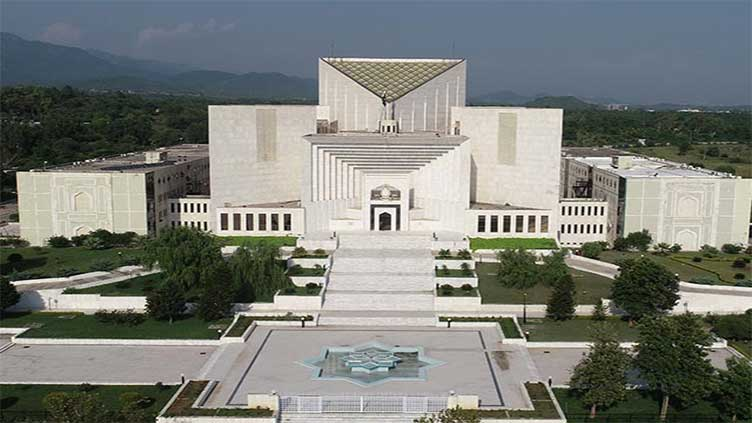A larger bench of the Supreme Court of Pakistan, led by Chief Justice Qazi Faez Isa, has resumed the hearing of a review plea regarding Article 63(A). This article addresses the defection of lawmakers from their party lines. The bench also includes Justice Amin-ud-Din Khan, Justice Jamal Khan Mandokhail, Justice Mazhar Alam Khan Miankhel, and Justice Naeem Akhtar Afghan, who took over for Justice Munib Akhtar.
This case is about a 2022 ruling, where the court decided that the votes of lawmakers who defy their party policy should not be counted. This decision has been challenged by the Supreme Court Bar Association (SCBA). The earlier judgment, which was a 3-2 split, effectively stopped lawmakers from going against their party’s directives during voting in parliament. Judges who favored the ruling included former Chief Justice Umar Ata Bandial, Justice Ijazul Ahsan, and Justice Munib Akhtar, while Justices Mandokhail and Mazhar opposed it.
In its review plea, the SCBA argued that this ruling contradicts the Constitution and amounts to interference. During the recent hearing, the lawyer for Pakistan Tehreek-e-Insaf (PTI), Barrister Ali Zafar, objected to the formation of the bench. He claimed it did not adhere to legal requirements. Zafar stated, “The law says that a three-member committee will constitute a bench,” highlighting that there is no provision for a two-member bench.
This objection arose due to Justice Mansoor Ali Shah’s absence from the committee that forms benches. CJP Isa explained that the current bench was formed out of necessity, incorporating Justice Afghan. However, the court dismissed the objections, with CJP Isa asserting, “It is our unanimous decision to reject the objections on [the constitution] of the bench.”
Additionally, the PTI lawyer sought permission to consult with the jailed party founder, Imran Khan, regarding the case. He emphasized the importance of discussing legal points with his client. The court agreed and instructed the attorney general to facilitate this meeting.
Article 63(A) of Pakistan’s Constitution addresses the defection of parliamentarians. Under this article, a lawmaker can face disqualification if they vote or abstain from voting in opposition to their party’s directive. This obligation applies in three key instances: during the election of the prime minister or chief minister, during a vote of confidence or no-confidence, and when dealing with money bills or constitutional amendment bills.
According to Article 63(A), the party leader must provide a written declaration indicating that a member has defected. However, before this declaration, the party head must allow the lawmaker to explain their reasons for defection. Once this step is complete, the party chief submits the declaration to the speaker, who forwards it to the chief election commissioner (CEC). The CEC then has 30 days to verify the declaration. If confirmed, the lawmaker will no longer hold their position, and their seat will be declared vacant.


